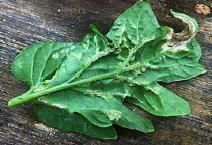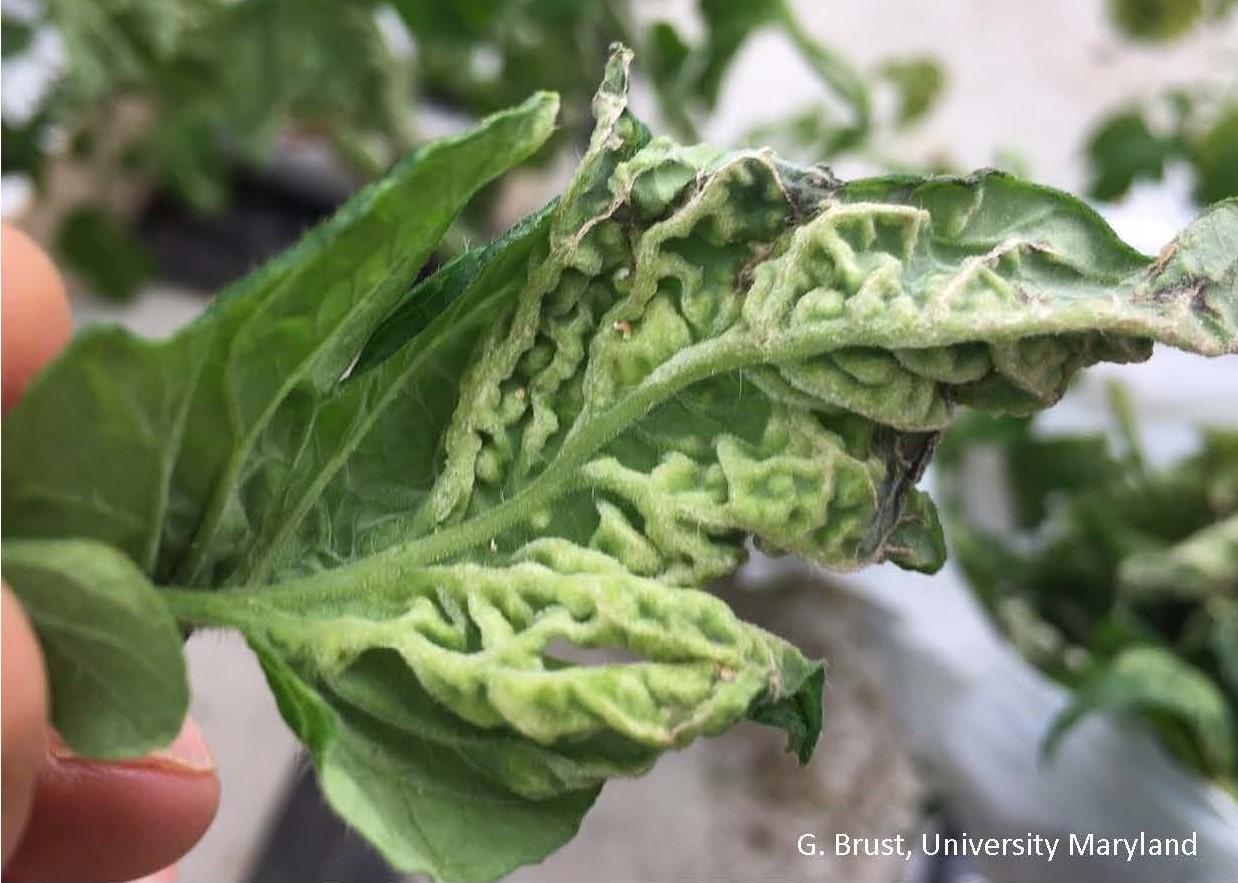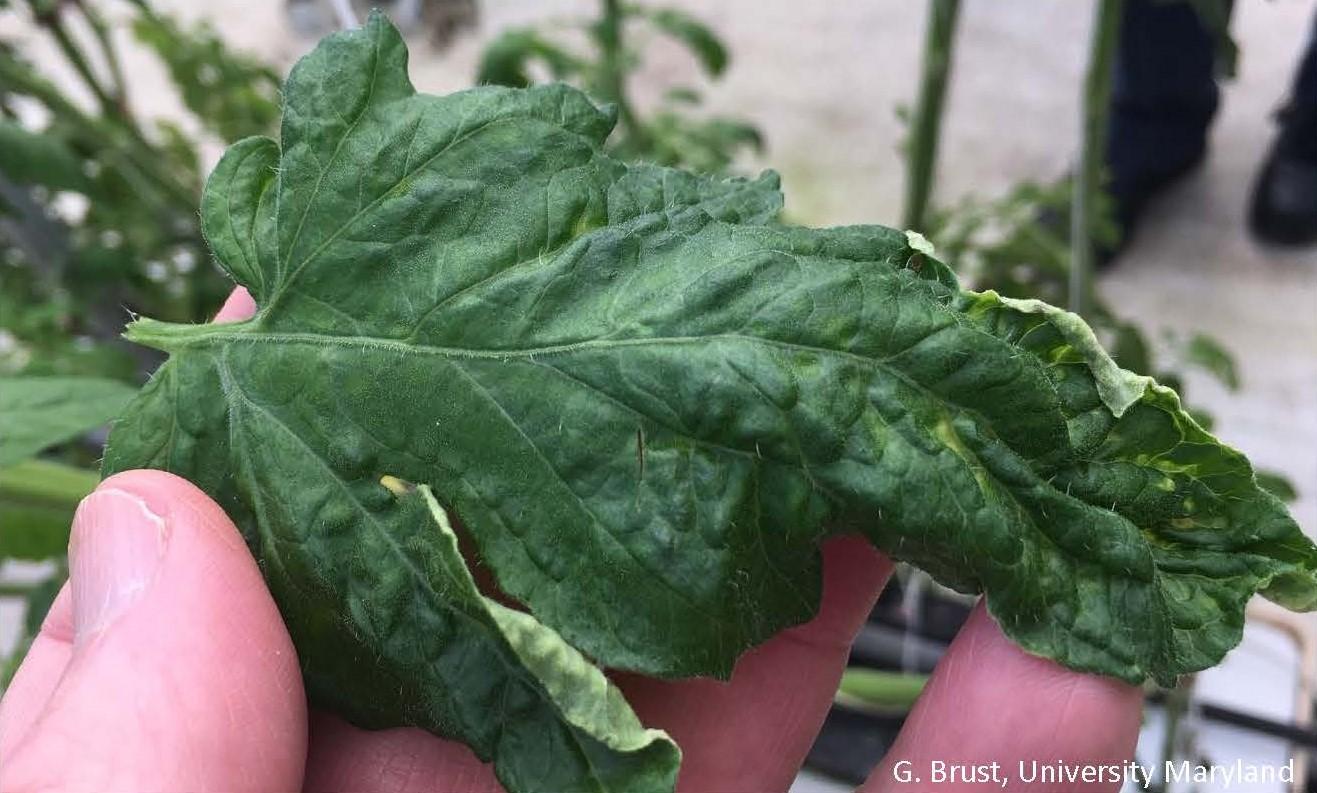I recently received an inquiry from a high tunnel grower about unusual symptoms on tomato leaves. The tomatoes were planted in early March, and in the past few weeks developed blisters or callus-like growths along veins (fig. 1 mild symptoms, fig. 2 more severe symptoms). Leaves also showed unusual curling and other odd distortions as well as yellow spots on the upper side of the leaf (fig. 3). Leaves with a great deal of this blistering were brittle with the leaf often cracking with any type of handling. These symptoms are edema (or sometimes spelled oedema). Edema is caused by the buildup of excess water in the root and conditions unfavorable for transpiration, usually caused by high humidity, low light and little air movement. When the tomato plant cells get too much water the cells will expand faster than they can get rid of the water leading to split and cracked tissue. Extensive edema can severely decrease the leaf’s photosynthetic capability and lead to senescence. Other research has looked at poor or low light sources that affect the plant’s ability to expel excess water. We have had cloudy cool weather in the last few weeks and these types of environmental conditions do not make it possible to roll up the sides of a high tunnel for good air circulation, which would help increase transpiration and reduce the likelihood of edema. Basically overwatering, high humidity and low or poor light are the major causes for the development of edema in plants. Therefore, avoid overwatering plants especially during cool temperatures when they should be kept slightly on the dry side. Keep humidity levels below 70% by enhancing airflow around the plants and by spacing the plants farther apart. And finally, if possible though more complicated, research has shown that increasing light quality by providing a more “full-spectrum” of light output, with significantly more short-wavelength energy (i.e., UV light), will also decrease the occurrence of edema.


University Maryland

Return to Horticulture and Disease Topics
This article appears in the April 2022, Volume 13, Issue 1 of the Vegetable and Fruit News
Vegetable and Fruit News, May 2021, Vol. 12, Issue 2
Vegetable and Fruit News is a statewide publication for the commercial vegetable and fruit industries and is published monthly during the growing season (April through October). Subscribers will receive an email with the latest edition.
Subscribe